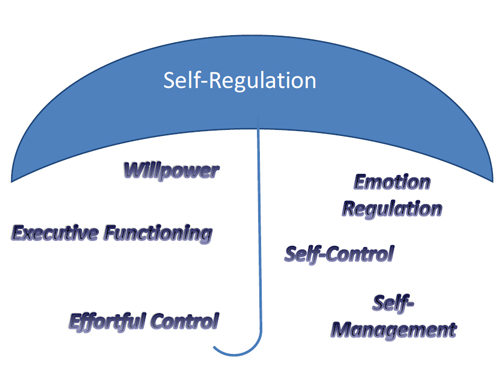Self Regulation Synonym : What it is
Benefits of Self-Regulation

Self-regulation is a crucial skill that is linked to various benefits in different aspects of life. Here are some of the key advantages:
- Achieving Goals: Self-regulation enables individuals to set and work towards their goals effectively. It helps in establishing a clear path, maintaining focus, and overcoming obstacles along the way.
- Emotional Well-Being: People with strong self-regulation skills are better equipped to manage stress, regulate their emotions, and maintain a positive outlook even in challenging situations.
- Healthy Relationships: Self-regulation plays a vital role in fostering healthy relationships. It allows individuals to respond rather than react, practice empathy, and communicate effectively.
- Success in Education and Career: The ability to self-regulate facilitates improved concentration, problem-solving, and decision-making skills, which are crucial for academic and professional success.
- Physical Health: Practicing self-regulation can contribute to a healthier lifestyle by helping individuals make mindful choices related to exercise, nutrition, and sleep.
Enhancing Self-Regulation Skills
If you want to enhance your self-regulation skills, there are several strategies you can employ. Here are a few effective methods:
- Mindfulness: Practicing mindfulness can help you become more aware of your thoughts, emotions, and physical sensations. It allows you to observe these experiences without judgment, and in turn, facilitates better self-regulation.
- Self-Reflection: Setting aside time for self-reflection allows you to gain insights into your behaviors, triggers, and patterns. This knowledge can help you identify areas for improvement and develop strategies for better self-regulation.
- Healthy Habits: Engaging in activities that promote physical and mental well-being, such as regular exercise, good nutrition, and quality sleep, can positively impact your self-regulation skills.
- Emotion Regulation: Learning techniques to manage and regulate your emotions, such as deep breathing, journaling, or seeking support from a therapist, can significantly contribute to your self-regulation abilities.
- Goal Setting: Setting realistic and achievable goals can provide a sense of purpose and direction. Breaking down larger goals into smaller, manageable steps can help you stay motivated and committed to your self-regulation journey.
Understanding Synonyms and Similar Terms

While the term "self-regulation" is widely used, there are various synonyms and similar terms that convey the same essence. Familiarizing yourself with these alternatives can provide a broader perspective on the concept. Here are some common synonyms and similar terms for self-regulation:
- Self-Control: Self-control refers to the ability to manage and control one's own thoughts, emotions, and behaviors effectively. It involves resisting temptations and making choices that align with long-term goals.
- Self-Discipline: Self-discipline refers to the ability to adhere to rules, routines, and commitments. It involves doing what needs to be done, even when it's challenging or uncomfortable, in order to achieve desired outcomes.
- Emotional Regulation: Emotional regulation focuses specifically on managing and controlling emotions. It involves understanding one's emotions, identifying triggers, and using strategies to modulate emotional responses.
- Impulse Control: Impulse control refers to the ability to resist immediate impulses or urges in favor of long-term goals or values. It involves pausing, considering consequences, and making deliberate choices rather than acting on impulse.
- Self-Mastery: Self-mastery encompasses the development of control and mastery over oneself. It involves understanding one's thoughts, emotions, and behaviors and actively working towards personal growth and improvement.
Frequently Asked Questions (FAQs)
Here, we address some frequently asked questions related to self-regulation:
- Q: Can self-regulation be learned?
A: Yes, self-regulation can be learned and developed through practice, self-awareness, and the implementation of effective strategies. - Q: Can self-regulation skills be taught to children?
A: Absolutely! Teaching self-regulation skills to children from a young age can help them develop essential emotional and behavioral control, leading to better overall well-being. - Q: Are self-regulation and self-control the same thing?
A: While self-regulation and self-control are closely related, they encompass slightly different aspects. Self-control focuses on managing impulses and resisting temptations, whereas self-regulation includes a broader range of skills, such as emotional regulation and goal-setting. - Q: How can self-regulation benefit my mental health?
A: Developing strong self-regulation skills can have a positive impact on mental health by reducing stress, promoting emotional well-being, improving coping mechanisms, and fostering resilience. - Q: Can self-regulation be improved through therapy?
A: Yes, therapy can be beneficial in improving self-regulation skills. Mental health professionals can provide guidance, support, and evidence-based techniques to help individuals enhance their self-regulation abilities.
Self-regulation Synonyms - 31 Words And Phrases For Self-regulation
 Image Source : www.powerthesaurus.org
Image Source : www.powerthesaurus.org regulation synonyms extinction powerthesaurus
Another Word For REGULATION > Synonyms & Antonyms
Antonyms And Synonyms Secret Picture Tile Puzzles For Google™ Classroom
 Image Source : www.pinterest.com
Image Source : www.pinterest.com Adult – Art Wagner, LCSW-C
 Image Source : arthurwagner.com
Image Source : arthurwagner.com Zones Of Regulation Emojis Regulation Zones Emotions Use Emotional Them
 Image Source : www.boteroinvenice.com
Image Source : www.boteroinvenice.com 15 Self-regulation And Self-control Books And Videos For The Classroom
 Image Source : www.pinterest.com.au
Image Source : www.pinterest.com.au Breathe Box
 Image Source : www.pinterest.co.uk
Image Source : www.pinterest.co.uk Activities For Teaching Simple Commands To Preschoolers | Synonym
 Image Source : www.pinterest.com
Image Source : www.pinterest.com Antonyms and synonyms secret picture tile puzzles for google™ classroom. Breathe box. 15 self-regulation and self-control books and videos for the classroom. Regulation synonyms extinction powerthesaurus. Another word for regulation > synonyms & antonyms